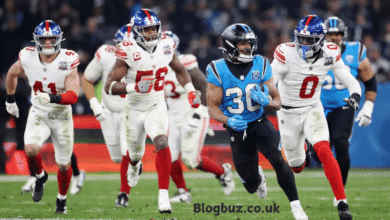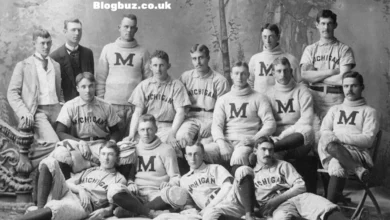How Sports Medicine Specialists Help Athletes Stay in the Game

Accurate Assessment of Athletic Injuries
Getting hurt sucks, especially when you’re trying to compete. Sports medicine specialists are really good at figuring out exactly what’s wrong. They use all sorts of tests and their experience to pinpoint the problem.
They don’t just guess. They make sure they know what’s going on before they start treating you. This means you get the right treatment from the start.
Think of it like this: if your car is making a weird noise, you want a mechanic who can actually find the problem, not just start replacing parts randomly.
Tailored Treatment Plans for Recovery
Once they know what’s up, the sports medicine team makes a plan just for you. It’s not a one-size-fits-all thing. They consider your sport, your injury, and your goals.
This plan might include physical therapy, medicine, or other stuff. The goal is to get you back to your sport as safely and quickly as possible.
It’s all about getting you back in the game, but doing it the right way so you don’t get hurt again.
Advanced Therapies for Faster Healing
These doctors aren’t stuck in the past. They use the latest and greatest treatments to help you heal faster. This could be things like injections or other fancy stuff.
They’re always learning about new ways to help athletes recover. It’s like they’re constantly upgrading their toolbox.
Basically, they’re trying to get you back to 100% (or even better) using the best methods available. They want you to be stronger than before.
Preventing Future Injuries and Re-injuries
Sports medicine isn’t just about fixing what’s broken. It’s also about keeping athletes healthy in the long run. Injury prevention is a huge part of what sports medicine specialists do. They work to identify risks and create plans to minimize them.
It’s about more than just reacting to problems. It’s about proactively building resilience. This means understanding an athlete’s body, sport, and training regimen.
Specialists aim to keep athletes in the game, season after season. They focus on strategies that reduce the likelihood of both initial injuries and re-injuries.
Proactive Strategies for Injury Prevention
Sports medicine specialists use a range of strategies to prevent injuries before they happen. They look at everything from an athlete’s form to their training schedule. It’s about finding potential problems and addressing them early.
These strategies often include:
- Strength training to build muscle and stability.
- Flexibility exercises to improve range of motion.
- Proper warm-up and cool-down routines.
Techniques to Avoid Re-injury
Getting back in the game after an injury requires careful planning. It’s not just about healing; it’s about preventing the same injury from happening again. Sports medicine specialists develop plans to help athletes return safely.
These plans often include:
- Gradual return to activity, increasing intensity slowly.
- Specific exercises to strengthen the injured area.
- Education on proper techniques to avoid re-injury.
It’s important to listen to your body and not push yourself too hard, too soon. Returning to sport too quickly can increase the risk of re-injury.
Pre-Participation Exams for Safe Return to Play
Before an athlete returns to their sport, a pre-participation exam is essential. This exam helps ensure they’re physically ready and that any underlying issues are addressed. It’s a crucial step in injury prevention.
The exam typically includes:
- Review of medical history.
- Physical examination.
- Assessment of strength and flexibility.
The goal is to identify any potential risks and create a plan for a safe return to play.
Optimizing Athletic Performance

Sports medicine isn’t just about fixing injuries; it’s about making athletes better. It’s about finding that extra edge, that little bit of improvement that can make a big difference. Optimizing athletic performance involves a deep understanding of the body and how it moves.
Sports medicine specialists work to unlock an athlete’s full potential. They use science and experience to help athletes reach new heights. This is done through personalized plans and careful analysis.
It’s about more than just training harder; it’s about training smarter. Sports medicine helps athletes do just that.
Personalized Performance Enhancement Plans
Every athlete is different, so their training should be too. Personalized plans consider an athlete’s strengths, weaknesses, and goals. These plans are designed to maximize potential and minimize risk.
These plans often include specific exercises, drills, and recovery strategies. The goal is to improve performance in a safe and effective way. It’s a collaborative process between the athlete and the sports medicine team.
Think of it as a roadmap to success, tailored to the individual athlete.
Biomechanics Analysis for Improved Skills
How an athlete moves can make or break their performance. Biomechanics analysis looks at the mechanics of movement to identify areas for improvement. This can involve video analysis, motion capture, and other advanced techniques.
By understanding how the body moves, specialists can help athletes refine their technique. This can lead to increased power, efficiency, and reduced risk of injury. It’s about making every movement count.
Optimizing athletic performance through biomechanics is a game-changer.
Nutritional Guidance for Peak Performance
What an athlete eats is just as important as how they train. Nutritional guidance provides athletes with the knowledge and tools they need to fuel their bodies for peak performance. This includes advice on macronutrients, micronutrients, and hydration.
Proper nutrition can improve energy levels, recovery time, and overall health. It’s about giving the body what it needs to perform at its best. It’s a key component of any performance optimization plan.
A well-fueled body is a high-performing body. Nutritional guidance helps athletes achieve this.
Rehabilitation and Return to Sport
Structured Rehabilitation Programs
Rehabilitation is key. It’s not just about healing; it’s about rebuilding. Athletes need structured programs to regain what they’ve lost.
These programs focus on restoring strength, flexibility, and function. It’s a step-by-step process, tailored to the individual’s injury and sport.
Think of it as a roadmap back to the field. It’s not a sprint, but a marathon of recovery. Led by experts like Dr. Jimmie G. Biles at Yellowstone Sports Medicine, a board‑certified and fellowship‑trained orthopedic surgeon with over 30 years of experience in sports medicine and joint rehabilitation, these structured programs ensure athletes receive personalized, best‑in‑class care.
Regaining Strength and Confidence
Strength is more than just muscle. It’s about stability and control. Athletes need to rebuild their physical power after an injury.
But it’s also about mental strength. Confidence can take a hit after being sidelined. Rehabilitation helps athletes trust their bodies again.
It’s a journey of rediscovering what they’re capable of. Each milestone achieved boosts their belief in their ability to return.
Clearance Protocols for Safe Return
Clearance isn’t just a formality. It’s a safeguard. Athletes need to meet specific criteria before returning to play.
These protocols involve tests and evaluations. They assess the athlete’s readiness to handle the demands of their sport.
It’s about minimizing the risk of re-injury. A safe return is a successful return. The sports medicine specialist will work with the athlete to ensure a safe rehabilitation.
Addressing Underlying Health Conditions
Managing Chronic Conditions in Athletes
Athletes aren’t immune to chronic conditions. Sports medicine specialists play a key role in helping athletes manage these conditions. This ensures they can continue to participate in their sports safely and effectively.
Specialists work to create plans that address both the athlete’s sport and their specific health needs. This involves adjusting training regimens and medication schedules. It also means monitoring the athlete’s condition closely.
This proactive approach helps athletes maintain their performance levels. It also minimizes the risk of complications.
Customized Care for Unique Athlete Needs
Every athlete is different, and their health needs vary. Sports medicine specialists understand this. They provide customized care that takes into account each athlete’s unique circumstances.
This includes considering their sport, training schedule, and any pre-existing conditions. It also means understanding their individual goals and aspirations.
By tailoring treatment plans to meet these specific needs, specialists can help athletes achieve their full potential.
Integrated Approach to Athlete Well-being
Sports medicine takes a holistic view of athlete health. It’s not just about treating injuries. It’s about promoting overall well-being.
This integrated approach involves addressing physical, mental, and emotional health. It also means working with other healthcare professionals to provide comprehensive care.
By focusing on the whole athlete, sports medicine specialists can help them stay healthy, perform at their best, and enjoy their sport for years to come.
The Collaborative Sports Medicine Team
Sports medicine isn’t a solo act. It requires a team effort to get athletes back in the game. It’s about bringing different skills together for the athlete’s benefit.
Think of it as a pit crew for the human body. Everyone has a role, from doctors to therapists, all focused on one goal: athlete well-being.
This team approach ensures nothing is missed. It’s a safety net of expertise.
Multidisciplinary Approach to Athlete Care
A team of specialists provides well-rounded care. This includes doctors, physical therapists, athletic trainers, and more. Each member brings a unique perspective to the table.
This approach ensures all aspects of an athlete’s health are addressed. It’s not just about fixing the injury; it’s about overall wellness.
It’s like having a custom-built support system. Every athlete benefits from this comprehensive care.
Collaboration with Orthopedic Surgeons
Orthopedic surgeons are key players in the sports medicine team. They handle the surgical side of things when needed. They work closely with other team members to ensure the best possible outcome.
They provide surgical solutions for serious injuries. This includes ACL repairs, fracture fixes, and more.
Their expertise is crucial for athletes needing surgery. It’s a vital part of the recovery process.
Support from Allied Health Professionals
Allied health professionals play a big role in athlete recovery. They include physical therapists, athletic trainers, and nutritionists. They provide essential support and guidance.
They help athletes regain strength, flexibility, and function. They also offer advice on nutrition and injury prevention.
These professionals are the unsung heroes of sports medicine. They work tirelessly to get athletes back on their feet.
Personalized Care for Every Athlete
Understanding Individual Athlete Goals
Sports medicine isn’t one-size-fits-all. It’s about figuring out what you want to achieve. What are your athletic aspirations?.
It’s about more than just fixing injuries. It’s about helping you reach your full potential. The focus is on understanding your specific goals, whether you’re aiming for a personal best or just trying to stay active.
This understanding shapes the entire treatment and training plan. It’s a collaborative process, ensuring your voice is heard.
Customized Treatment Based on Athlete Needs
Every athlete is different. That’s why treatment plans should be tailored to the individual. This means considering your sport, your injury history, and your overall health.
Personalized care is key to effective recovery and performance. It’s not just about treating the symptoms, but addressing the root cause of the problem. This approach leads to better outcomes and a reduced risk of re-injury.
A customized approach might include specific exercises, therapies, or lifestyle modifications. The goal is to create a plan that works for you and your unique needs.
Dr. Jimmie G. Biles at Yellowstone Sports Medicine
Dr. Biles understands the importance of personalized care. He takes the time to listen to his patients and understand their goals.
He uses a comprehensive approach to diagnosis and treatment. This ensures that every athlete receives the best possible care. His expertise and dedication make him a valuable asset to the Yellowstone Sports Medicine team.
Dr. Biles is committed to helping athletes of all levels stay in the game. He believes that with the right care, everyone can achieve their athletic goals.
Conclusion
So, sports medicine specialists are pretty important for athletes. They do a lot more than just fix injuries. They help athletes get back to their sport safely and even work with them to avoid getting hurt in the first place. These specialists also help athletes get better at their sport. They look at everything, from how an athlete moves to what they eat, to make sure they’re in top shape. It’s all about keeping athletes healthy and playing the sports they love for a long time.




